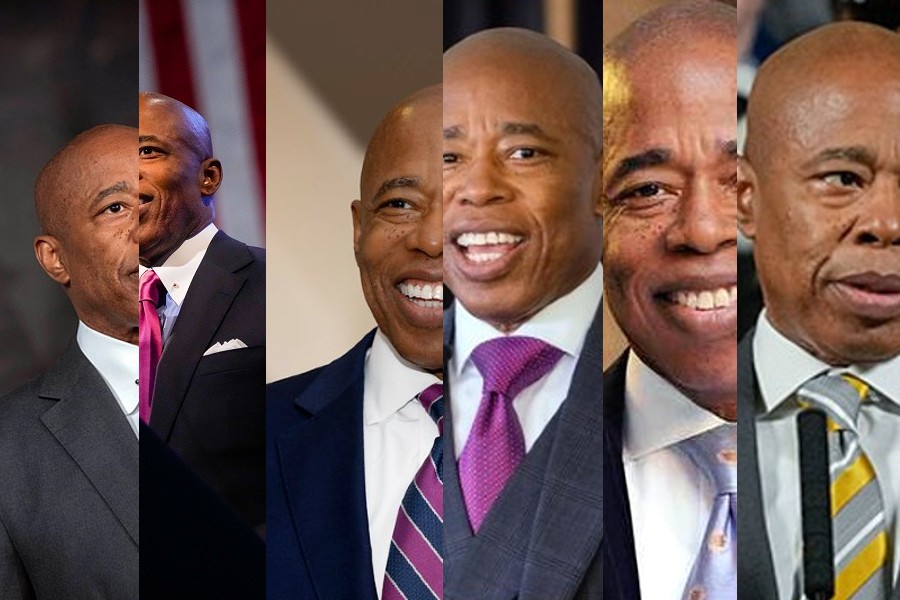
By Assemblyman Clyde Vanel
Access to advanced generative artificial intelligence has been available to the general public since November 2023.
Since then, in less than two years, this technology has revolutionized our world, creating a future that looks both bright and uncertain. Today, generative artificial intelligence is utilized to the same extent that search is utilized by millions of people worldwide. Generative artificial intelligence has been utilized in research, content development, government applications, and more. At the same time, agents powered by artificial intelligence have become widely available, and their applications have permeated nearly every aspect of human endeavor.
During the State of the State, Governor Kathy Hochul proposed the first-in-the-nation program Empire AI. Empire AI entails a $400 million investment into a state-of-the-art computing facility situated in Buffalo, NY with a supercomputer to be used for research and development. It will also include a consortium of New York academic institutions and private organizations. The program is the boldest AI proposal in the nation.
Coming off the heels of the Empire AI announcement, Governor Kathy Hochul has recently put forward several new artificial intelligence policy proposals. Among the policy proposals are (1) the unlawful utilization of artificial intelligence for coercion, criminal impersonation, and identity theft, (2) creating the crime of unlawful dissemination or publication of a fabricated photographic, videographic, or audio record, (3) codifying the right to sue over digitally manipulated false images, and (4) requiring that within 60 days of an election, all forms of political communication utilizing artificial intelligence disclose the fact that they use artificial intelligence.
A number of the proposals are the result of three bills that I am sponsoring: the first prohibits the “unlawful dissemination or publication of a fabricated photographic, videographic, or audio record,” and the second mandates that all forms of political communication disclose artificial intelligence use within sixty days of an election. The unauthorized dissemination bill is derived from A6775. The election proposal, on the other hand, is a composite of A6790 and A7904. I am proud to partner with the Governor on her artificial intelligence proposals and look forward to working with her in the future to propose further cutting-edge legislative proposals.
It is of the utmost importance that proper and reasonable guardrails be placed around artificial intelligence. The exponential growth of artificial intelligence is simultaneously remarkable and also worrisome. This is because the rapid advancement of artificial intelligence has made it so that this technology is capable of performing tasks that were previously thought impossible. As a result, the future remains uncertain. Therefore, it is imperative that appropriate and accountable limitations be imposed on this technology in order to guarantee it’s just and equitable application, to prevent encroachment upon individuals’ rights and livelihoods, and to ensure universal accessibility.
Particularly during elections, it is critical that thorough safeguards be placed on the application of artificial intelligence. Misuses of artificial intelligence have already occurred throughout the nation; in New Hampshire, for instance, an artificially generated robocall featuring our president, Joe Biden, advising individuals not to vote circulated; and even in New York, a prominent Democratic leader from Manhattan had disseminated of him a deep fake audio recording of himself disparaging an assemblywoman. With the relative ease at which people can generate this media, it is only a matter of time before a deepfake has a truly exceptional impact on a major election.
Technologies such as artificial intelligence have and will continue to transform and revolutionize our daily lives and the way we do business. It is critical that we be adequately equipped to capitalize on the advantages it offers.
We are entering an era of artificial intelligence regulation similar to that of the internet age. Unlike the past where progress online was slow and reactive we now need to anticipate artificial intelligence threats now and be proactive. Collaboration, between the government, the private sector and academia is crucial, for creating accountable legislation. Without this collaboration it will be challenging to address issues that affect all levels of government. Moving slowly puts us at risk of losing out on the benefits of artificial intelligence technology and maintaining U.S. leadership globally.
As we embark on this new era of AI, it is imperative that we remain resolute in our efforts to establish appropriate boundaries around this technology. We must approach this situation prudently and judiciously. If we can do that, then we will be in a position to revolutionize our daily lives and economy and advance our nation in ways that were previously unimaginable.
- New York City Marks Significant Criminal Justice Progress In 2024
- The Mayors Op-Ed: 2024, A Record Year of Delivering For New Yorkers
- Mayor Adams Celebrates 100th Young Adult From Foster Care Secured Housing
- NYC Health Department Unveils 2023 Data On Rising Sexually Transmitted Infections
- Complete Beach Vacation Packing List: All You Need For An Ideal Trip
Become a Harlem Insider!
By submitting this form, you are consenting to receive marketing emails from: . You can revoke your consent to receive emails at any time by using the SafeUnsubscribe® link, found at the bottom of every email. Emails are serviced by Constant Contact








